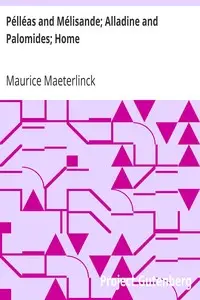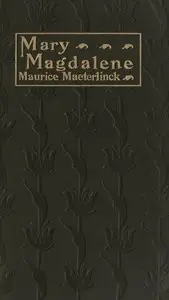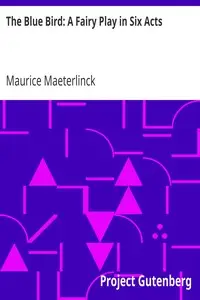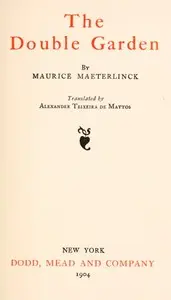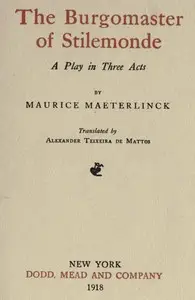"Joyzelle" by Maurice Maeterlinck is a play that explores the tricky areas of relationships, love, and how much control we have over our own lives. It centers on Merlin, a really smart and strong character, his son Lancéor, who is struggling between what he wants and what he has to do, and Joyzelle, who's dealing with fate and her own feelings. At the start, we see Merlin talking to Arielle, who is like his inner voice, about what's going to happen to Lancéor, who is on his way to meet Joyzelle. They talk about how important love is in deciding what happens to us. As they talk, we find out that Lancéor's happiness depends on Joyzelle, who is going to have to get through some tough tests of love. Their meeting is full of suspense, and the audience knows that the characters are going to face some problems, setting the stage for a mix of romance and serious questions about life that Maeterlinck is known for.
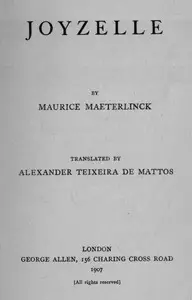
Joyzelle
By Maurice Maeterlinck
In a world of magic and fate, a son must choose between love and duty as a woman faces trials that will determine his happiness.
Summary
About the AuthorMaurice Polydore Marie Bernard Maeterlinck, also known as Count/Comte Maeterlinck from 1932, was a Belgian playwright, poet, and essayist who was Flemish but wrote in French. He was awarded the Nobel Prize in Literature in 1911 "in appreciation of his many-sided literary activities, and especially of his dramatic works, which are distinguished by a wealth of imagination and by a poetic fancy, which reveals, sometimes in the guise of a fairy tale, a deep inspiration, while in a mysterious way they appeal to the readers' own feelings and stimulate their imaginations". The main themes in his work are death and the meaning of life. He was a leading member of La Jeune Belgique group, and his plays form an important part of the Symbolist movement. In later life, Maeterlinck faced credible accusations of plagiarism.
Maurice Polydore Marie Bernard Maeterlinck, also known as Count/Comte Maeterlinck from 1932, was a Belgian playwright, poet, and essayist who was Flemish but wrote in French. He was awarded the Nobel Prize in Literature in 1911 "in appreciation of his many-sided literary activities, and especially of his dramatic works, which are distinguished by a wealth of imagination and by a poetic fancy, which reveals, sometimes in the guise of a fairy tale, a deep inspiration, while in a mysterious way they appeal to the readers' own feelings and stimulate their imaginations". The main themes in his work are death and the meaning of life. He was a leading member of La Jeune Belgique group, and his plays form an important part of the Symbolist movement. In later life, Maeterlinck faced credible accusations of plagiarism.



